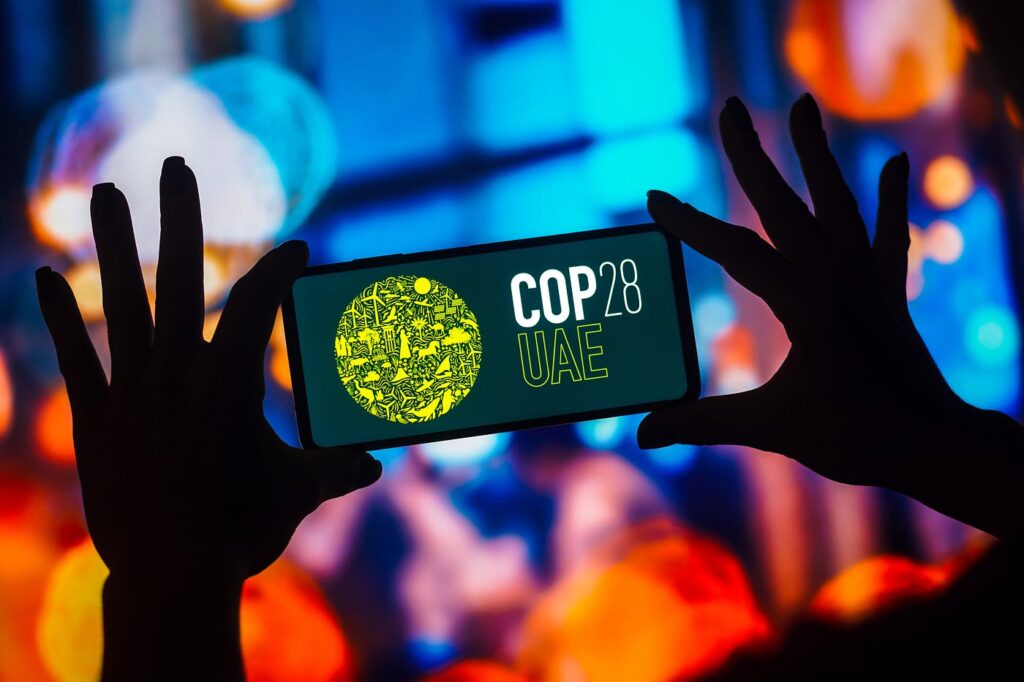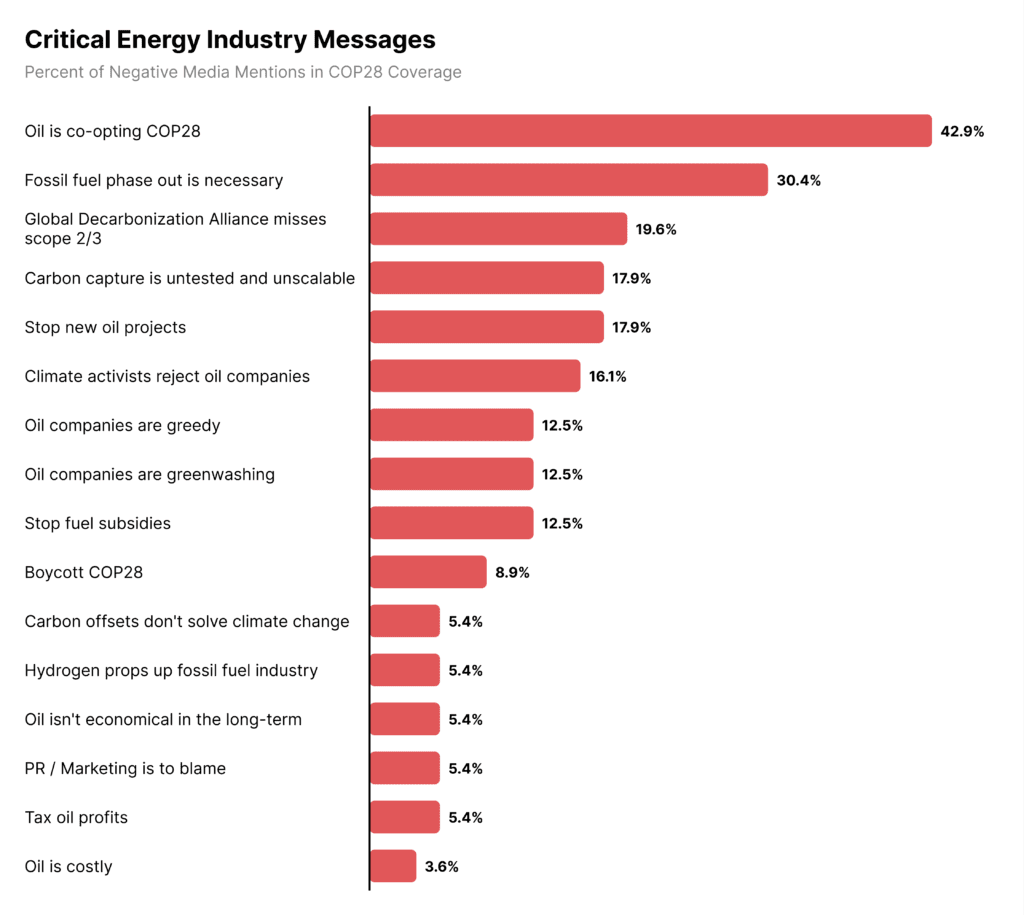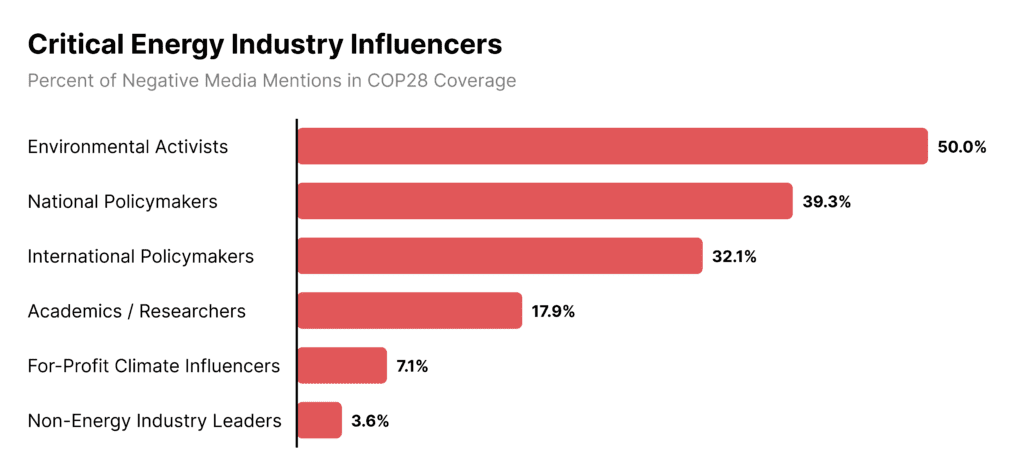
The COP28 Climate Change conference in Dubai is rapidly approaching and already making headlines. The media buzz is especially focused on the energy sector, who will now have a seat at the UN negotiating table.
Energy companies have opportunities to proactively shape their media reputation ahead of the conference. But that attention may bring new challenges and risks. So it’s important for energy communicators to be prepared for potential criticisms they may face.
To surface these risks, PublicRelay examined the media landscape for energy companies ahead of COP28. We drew on a sample of top stories in September and October 2023 about the conference.
Here are five PR risks energy communicators must prepare for ahead of COP28:
1. Watch out for concerns about competing interests
Climate advocates are skeptical of oil & gas’s involvement in COP28. Al Gore recently slammed the conference’s appointment of Sultan al-Jaber, the CEO of the Abu Dhabi National Oil Company, as COP28 president.
Wider oil & gas involvement may fuel fears that the sector is attempting to capture and obstruct global climate progress. That was the most prevalent and wide-reaching concern in the media. Some activists went so far as to demand boycotts of the conference.
2. Anticipate scrutiny about the scope of climate pledges
Companies like Shell and TotalEnergies have rallied around a Global Decarbonization Alliance in the oil & gas sector. Championed by the COP28 president, this alliance commits reducing emissions from oil extraction. It also aims to reduce methane emissions and oil leaks.
Energy companies should expect criticism about the scope of those commitments. Critics highlight that they miss scope 2 and 3 emissions where the energy sector’s impact is greatest.

3. Be ready to defend future energy solutions
Climate advocates will likely be skeptical of new investments in new energy solutions. These range from carbon capture technologies to development of hydrogen fuel.
Some claim that carbon capture approaches are untested and unscalable. Some call out hydrogen development as simply re-entrenching reliance on fossil fuel.
4. Expect demands for financial commitments
Climate finance will be among the leading topics at COP28. Climate leaders are hoping to mobilize capital toward new climate-friendly infrastructure.
But some policymakers are also calling for prices on carbon, windfall taxes on energy profits, and a rollback of fuel subsidies worldwide. Energy companies may even be expected to arrive at COP28 with innovative approaches to carbon credits and pricing.
5. Manage perceptions from climate academics
Environmental activists are the biggest critics of energy companies. They speak loud and often.
Yet climate academics may be a bigger PR risk. They don’t criticize energy companies regularly. But when they do they receive higher engagement on average. Academics may be seen as more objective and credible to a wider audience.

PR is in the spotlight
The stakes are high for energy communicators. Climate leaders will watch energy companies closely. Climate advocates may be quick to label the energy sector’s involvement in COP28 as nothing more than a greenwashing stunt.
Energy communicators must emphasize their genuine commitment to climate solutions. Make clear that oil & gas pledges may just be a first step in a larger green transition. Be prepared to showcase tangible investments in new and viable energy solutions. Offer support to innovative financing arrangements to position yourself as a forward-looking business.
Platforming third-party support is also necessary. Engage credible experts that can objectively support the energy sector’s efforts. Play up support from climate leaders like US climate envoy John Kerry and the Environmental Defense Fund’s Amanda Leland. Those influencers may be more hopeful that energy’s presence at COP28 can move climate progress forward.
Read Next: Improve Your ESG Communications Strategy